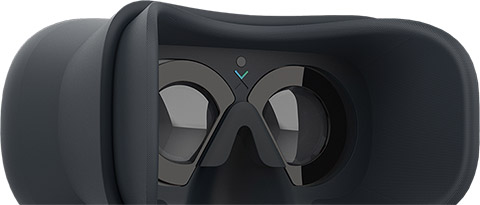
Varjo, the developer of the ‘human-eye’ resolution VR / XR headset designed for industrial use, has received a $31m Series B investment, led by Atomico.
The Helsinki-based firm has also announced that it is collaborating with Airbus, Audi, Lilium, Saab, Sellen, Volkswagen and Volvo Cars to optimise the headset for their respective business sectors and needs.
Varjo will launch its VR headset in late Q4, 2018, with an AR/XR add-on to the headset available in the first half of 2019. The current available prototype has an effective resolution of 50 megapixels per eye, over twenty times that of consumer devices.
The product will be an industrial-grade VR / XR headset that allows professionals, in sectors from aerospace to architecture, to work in human eye-resolution virtual or mixed reality when designing new products. The headset can be integrated with the world’s most popular 3D engines and software tools.
Varjo achieves its ‘human eye’ resolution by mimicking how the eye works in real life by only making the centre of the wearer’s gaze super sharp in focus.
The headset does this by using two different displays within the headset. The high pixel density ‘focus display’ uses eye tracking and a ‘bionic display’ to physically follow the wearer’s gaze in real time and a ‘context display’ for the peripheral vision. The images from both displays are blended together.
The Series B investment will be used to scale Varjo’s 80-strong hardware and software teams to more than 200 over the next 12 months, and to finance the global launch and go-to-market of Varjo’s first product.
Varjo says that, unlike devices such as Magic Leap, HoloLens, and HTC Vive Pro, its product can be used in fields where extreme precision and visual fidelity are paramount.
“The resolution of VR devices on the market today is a fraction of what the average human eye can see,” said Atomico founding partner and CEO, Niklas Zennström.
“Until we met Varjo’s visionary founders and experienced their superior product first hand, we thought that VR was still at least 10 years away from being truly useful for professionals.
“It’s because of Varjo’s world class team that industries such as automotive, engineering, aerospace, architecture, construction, industrial design and real-world training simulations won’t have to wait that long to be able to utilise the technology for their business-critical use cases.”
“Decisions are the daily challenge in a product development process. Supporting virtual development means to deliver the highest available quality to enable reliable decisions. Varjo’s technology is convincing and will help us to close the existing gaps and speed up our development cycles using the advantages of a continuous virtual process,” said Jan Pflueger, coordination augmented and VR Centre Of Competence at Audi.






